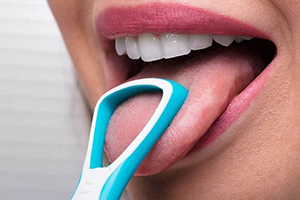By Setareh Kiumarsi
Aside from brushing and flossing, what else can you do to keep your teeth healthy?
One of the most important factors that weakens and damages teeth is the acidification of the oral environment. That’s why most toothpastes are slightly bitter or astringent—to help alkalize the mouth.
So, what can we do to keep our teeth happy and slow down decay?
First, try to reduce your intake of sugary or acidic foods. These are major culprits in creating an environment where harmful bacteria thrive.
After meals, pour a little salt into the palm of your hand and rub it gently onto your teeth with your tongue. This simple act helps alkalize your mouth and neutralize acidity from food.
Throughout the day, you can chew on a few fennel seeds, or one clove or one cardamom pod like chewing gum, and then swallow it when you’re done. These aromatic seeds not only freshen your breath and balance the pH of your mouth, but also help reduce toothaches.
Now let’s talk about oil pulling, one of the most effective Ayurvedic practices for oral health. Every morning, swish about one to two tablespoons of sesame oil, or a 50/50 blend of coconut oil and sweet almond oil, around in your mouth for several minutes. Then spit it out (be careful not to swallow it or gargle it). This practice helps draw toxins and bacteria out of your mouth by binding them to the oil molecules. It also helps fill in microscopic pores and cracks in your teeth, supporting long-term dental strength.
What’s the next step? After oil pulling, it’s a great idea to swish and gargle with some salt water or cooled clove tea to refresh and cleanse the mouth.
If you often find that your saliva is thick, sticky, or foul-smelling, try rinsing your mouth—especially under the tongue—morning and night with haritaki tea. To make it, steep one teaspoon of haritaki powder in a glass of hot water and let it brew.
Take care of your teeth with intention and consistency—your mouth will thank you for it.
Please be sure to credit the author, Setareh Kiumarsi, when sharing or republishing this article, which was written with love and the hope of well-being for all.







